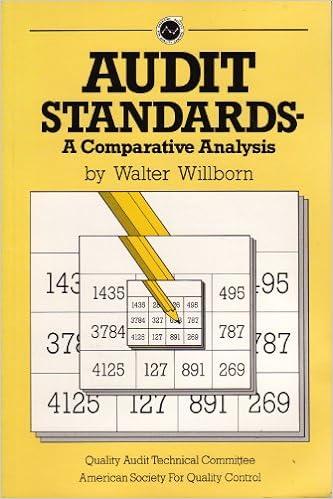Question
May 2015 - Management Case Study Variant 1 This excerpt is based on the Management Level case study related to Flote, one of the world's
May 2015 - Management Case Study Variant 1
This excerpt is based on the Management Level case study related to Flote, one of the world's largest transport companies. The primary business is in shipping and managing the movement of shipping containers.
You've just received an email from the head of Flote's Public Relations department, referencing a statement posted the previous day on a popular social media site:
"I see that Flote have bought themselves the world's largest container ship. That makes it even more difficult for us to tell how profitable the company really is. It is impossible to compare depreciation charges with the other shipping companies as it is. Now we'll have to trust Flote to estimate the useful life of a brand new class of ships that nobody has ever operated before.
The information in the accounting policies note was never very useful as it was. The company states that 'depreciation is charged to the statement of profit or loss on a straight-line basis over assets' useful lives'. We are told that the useful lives of ships are generally 20 to 25 years. Which is it - 20 or 25? What rate will be used for the new ship? One of Flote's closest competitors makes a similar statement, but claims that its ships have lives of 20 to 30 years. Hasn't Flote ever heard of maintenance?
I think that we should be concerned here because the directors are clearly more excited about having the largest and latest ships than about providing shareholders with value for money. They can justify anything they like because they produce the accounting numbers. However, have they forgotten that they cannot control the market's reaction?"
Consider what business issues could arise as well as what are the ethical concerns.
All you know about this shareholder is that he or she is an individual rather than an institutional investor. Several other shareholders already commented on this post, stating that they agree with it.
The Head of PR has asked you to explain the ethical issues that could arise if Float's Public Relations department posts a strong denial of the points made in this blog.
Question- You should consider what may be the most relevant principles from CIMA in addressing the dilemma and what the next steps should be.?
Step by Step Solution
There are 3 Steps involved in it
Step: 1

Get Instant Access to Expert-Tailored Solutions
See step-by-step solutions with expert insights and AI powered tools for academic success
Step: 2

Step: 3

Ace Your Homework with AI
Get the answers you need in no time with our AI-driven, step-by-step assistance
Get Started


